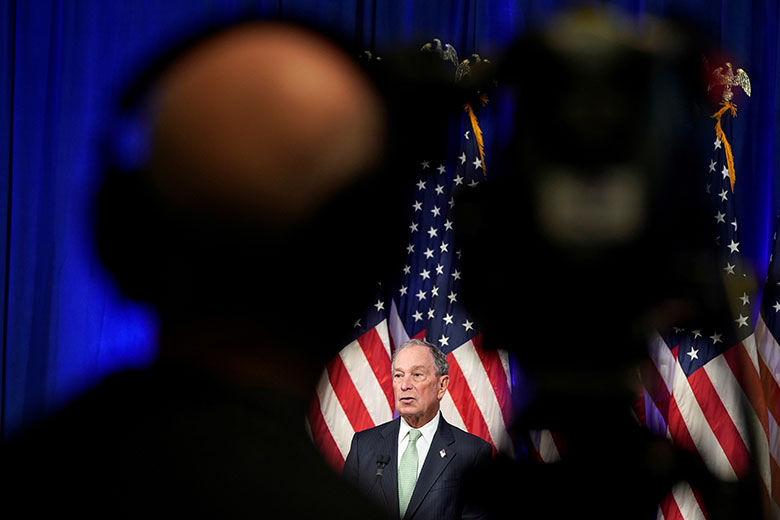Michael Bloomberg is a dream candidate for executives who would like an alternative to Donald Trump without disruption to business as usual for corporate America.
Bloomberg started on Wall Street at Salomon Brothers, built his own data and media empire and was an efficient technocratic mayor of New York before a return to his eponymous firm that was widely assumed to be a temporary stop while he decided what to do next.
Bloomberg launched his campaign with a barrage of TV ads, while his personal fortune of close to $60 billion will allow him to comfortably outspend any of his rivals if the candidacy develops momentum.
But there is no guarantee that his efforts will resonate with Democratic primary voters, and both Sanders and Warren were quick to condemn Bloomberg as a billionaire who was trying to buy votes and circumvent grass-roots campaigning.
So financial industry leaders may be right to fear the prospect of a populist successor to Trump with a more aggressive approach to Wall Street than other Democratic presidents in the last half century.
دليمما
A wealth tax of the type proposed by Warren and Sanders remains a distant prospect, and private equity managers have a long track record of successfully stalling changes that would affect their business model.
A return of the opprobrium faced by financiers of all types in the wake of the 2008 credit crisis seems increasingly likely, however. That in turn presents a dilemma for the industry’s leaders as they decide how to engage with their critics.
For an example of the truly destructive potential of a misguided PR initiative, however, Wall Street leaders had to look across the ocean to the disastrous interview Prince Andrew conducted with the BBC in a bid to answer questions about his long association with disgraced financier and sex offender Jeffrey Epstein, who died in a jail cell in August in an apparent suicide.
The leaders of these firms are unlikely to relish direct questions about their own fortunes that cannot be influenced by their PR staff
The broader lessons of the Prince Andrew interview come in the unintended effect that disclosure of detail can have on a reputation. This is a potential pitfall for private equity executives seeking to defend their industry from political attacks that are starting to focus on examples of the impact that individual deals have on employees, rather than simply condemning the very rich in broad terms.
Private equity firms such as Apollo, Blackstone and KKR can deploy facts about the number of workers employed by companies they control or provide examples of investments that helped to turn around struggling corporations.
The leaders of these firms are unlikely to relish direct questions about their own fortunes that cannot be influenced by their PR staff, however.
Blackstone founder and chief executive Stephen Schwarzman is still probably best known for the lavish 60th birthday party he threw for himself in New York in 2007 on the brink of the great financial crisis; and a similarly extravagant 70th birthday bash in Palm Beach in 2017 indicated that he continues to scoff at populist critics.
Schwarzman is also one of the Wall Street leaders most closely associated with Donald Trump, as a friend and supporter.
If Bloomberg fails to gain traction and a populist Democrat does make it to the White House, Schwarzman and other executives should brace themselves for a backlash.


 Signal2forex.com - بهترين فاریکس روبوٽ ۽ سگنل
Signal2forex.com - بهترين فاریکس روبوٽ ۽ سگنل




